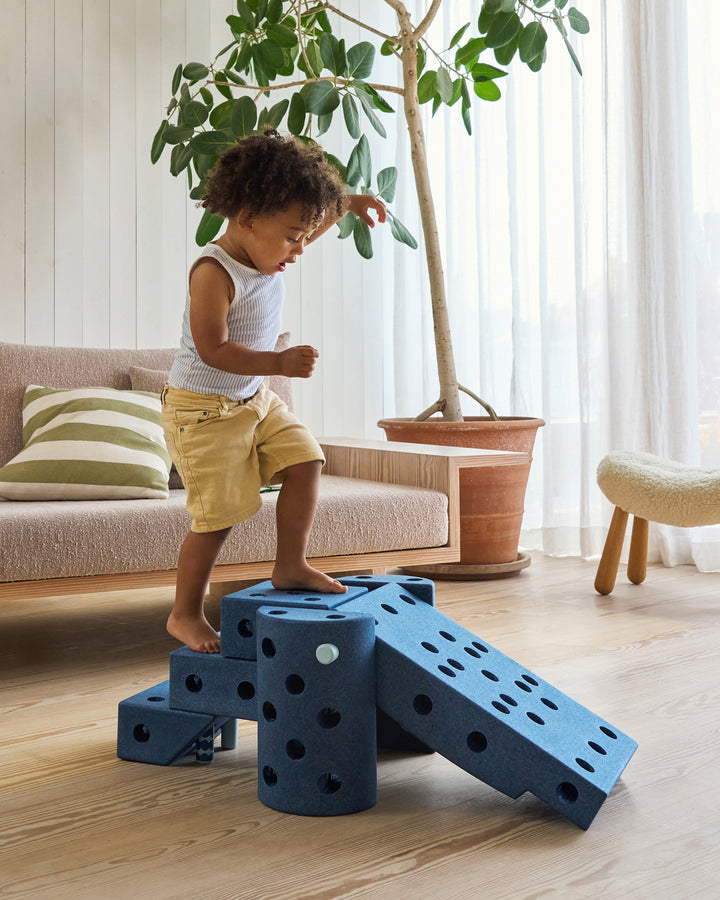Parents’ Guide to Healthy Development
As parents, we want our children to thrive, and one of the most effective ways to support their growth is through play. Discover how play fuels learning and development, helping children build essential skills, confidence, and creativity as they explore their world.

Play Equals Development
Play is more than just a way for children to pass the time; it’s a vital component of healthy development. Children learn by using their imagination and bodies to explore, discover, and push boundaries, acquiring new skills and knowledge. Letting children explore and create helps them build confidence and encourages them to face life’s challenges with curiosity and an open mind, eager to learn from every new adventure.
Nurturing Growth and Motor Skill Development
Encouraging physical activity through play is essential for your child’s growth. While outdoor play is crucial, having toys that facilitate active play indoors can be highly beneficial, such as ride-ons, balance toys, and obstacle courses. These all promote gross motor skills, like coordination, strength, and balance as children climb, jump, and explore.
Choosing toys that match your child’s developmental stage and skill level ensures they stay both challenged and engaged. Look for age-adaptive options that can grow with your child, offering long-lasting and meaningful play experiences.
Boosting Creativity
Play is a powerful catalyst for creativity and cognitive development in children, especially open-ended play that gives children the freedom to explore and use their imagination without predefined rules or outcomes. A simple object can transform into a car, a space ship, a whole play world! It allows kids to express their thoughts and feelings creatively, and it encourage them develop critical thinking and problem-solving skills, as there is no single right way to play.
Encourage open-ended play by offering toys with multiple uses, like blocks or arts and crafts, and remember — you don’t need to entertain your child every minute of the day. Letting them get a little bored can actually ignite their creativity, sparking all kinds of fun ideas and activities.
Reducing Screen Time
Limiting screen time is key to helping children thrive. Too much screen exposure can interfere with brain growth and cut down on the fun, real-life moments that spark communication, problem-solving, and social skills. It also promotes sitting still when little ones should be moving and building up their motor skills. Plus, too much screen time can mess with sleep, thanks to that sneaky blue light — and that’s the last thing anyone wants!
We’re not here to judge; it's all about finding a balance. Establish boundaries for how much time your child spends on devices to promote a healthy mix of active and imaginative play. Model off-screen activities to show your child the joy of engaging in non-digital pursuits, such as reading or crafting, and create space for shared play and family time.




